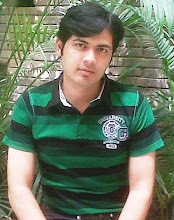 Amartya Kumar Sen (born November 3, 1933) is an Indian Economist best known
Amartya Kumar Sen (born November 3, 1933) is an Indian Economist best known
for his work on famine, human development theory,welfare,economics, and
the underlying mechanisms of poverty. He received the Bank of Sweden Prize
in Economic Sciences in Memory of Alfred Nobel,Nobel Prize in Economics for
his work in welfare economics in 1998 and the Bharat Ratna in 1999.
==Education and career==
 Sen was born in Santiniketan, West Bengal, the University town
Sen was born in Santiniketan, West Bengal, the University town
established by the poet Rabindranath Tagore, another Indian Nobel
Prize winner.Tagore is said to have given
Amartya Sen his name. Sen first studied in India at the school system
of Visva-Bharati University, Presidency College, Kolkata and at the
Delhi School of Economicsbefore moving to Trinity College, Cambridge, where he earned a
Bachelor of Arts.BA in 1956 and then a Doctor of Philosophy,Ph.D. in 1959.
He has taught economics at University of Calcutta,Jadavpur University, Delhi, University
of Oxford|Oxford,London School of Economics,Harvard University. and,was Master of Trinity
College,Cambridge| University ofCambridge|Cambridge, between 1997 and 2004.
 In January 2004 Sen returned to Harvard, where he currently teaches.
==Important works==
Sen's seminal papers in the late sixties and early 1970s helped develop the theory of
social choice, which first came to prominence in the work by the American economist
In January 2004 Sen returned to Harvard, where he currently teaches.
==Important works==
Sen's seminal papers in the late sixties and early 1970s helped develop the theory of
social choice, which first came to prominence in the work by the American economist
Kenneth Arrow|Kenneth Arrow, who, while working in the fifties at the
RAND Corporation, famously proved that all voting rules, be they majority voting or
supermajority,two thirds-majority or status quo,must inevitably conflict some basic
democratic norm. Sen's contribution to the literature was to
show under what conditions Arrow's Impossibility Theorem would indeed come to pass as
well as to extend and enrich the theory of social choice,informed by his interests in history
of economic thought and philosophy.
Sen's best-known work is his 1981 volume Poverty and Famines: An Essay on Entitlement and
Deprivation, in which he demonstrated that famine occurs not from a lack of food, but from
inequalities built into mechanisms for distributing food. In addition to his important
work on the causes of famines, Sen's work in the field of development economics has had
considerable influence in the formulation of the Human Development Report, published by
the United Nations Development Programme. This annual publication that ranks
countries on a variety of economic and social indicators owes much to the contributions
by Sen among other social choice theorists in the area of economic measurement of
poverty and inequality.
Sen's revolutionary contribution to development economics and social indicators is the
concept of'capability.' Realizing that top-down development will always trump human
rights as long as the definition of terms remains in doubt (is a 'right' something that must be
provided or something that simply cannot be taken away?), Sen argues that governments
should be measured against the
concrete capabilities of their citizens. For instance, in the United States citizens have a
hypothetical "right" to vote. To Sen, this concept is fairly empty. He would ask whether all
the requisite conditions are met so that the citizen has the capability to vote. These
conditions can range from the very broad, such as the availability of education, to the very
specific, such as transportation to the polls.Only when such barriers are removed can the
citizen truly be said to act out of personal choice. It is up to the individual society to
make the list of minimum capabilities guaranteed by that society. For an example of the
'capabilities approach' in practice, see Martha Nussbaum's Women and Human Development.
Sen was a ground-breaker among late twentieth-century economists in his insistence on
asking questions of value, long removed from "serious" economic consideration. He mounted one
of the few major challenges to the economic model that posited self-interest as the prime
motivating factor of human activity. While his line of thinking remains peripheral,
there is no question that his work helped to re-prioritize a significant sector of economists
and development workers, even the policies of the United Nations.
==Personal Life==
Their marriage broke up shortly after they went to London in 1971. His second wife was
Eva Colorni,with whom he lived from 1973 onwards. She died from stomach cancer quite
suddenly in 1985. Theyhad two children Indrani and Kabir. His present wife is Emma
Mayer Amschel Rothschild.
Source:Wikipedia.
Related Posts by Categories
Amartya Kumar Sen (born November 3, 1933) is an Indian Economist best known
Sen was born in Santiniketan, West Bengal, the University town
In January 2004 Sen returned to Harvard, where he currently teaches. ==Important works== Sen's seminal papers in the late sixties and early 1970s helped develop the theory of social choice, which first came to prominence in the work by the American economist

1 comments on "Amartya Sen:The Mother Teresa of Economics"
Subscribe in a Reader
hey look at this
central govt.is more kind towards their employees
so can we think bt this?
Post a Comment